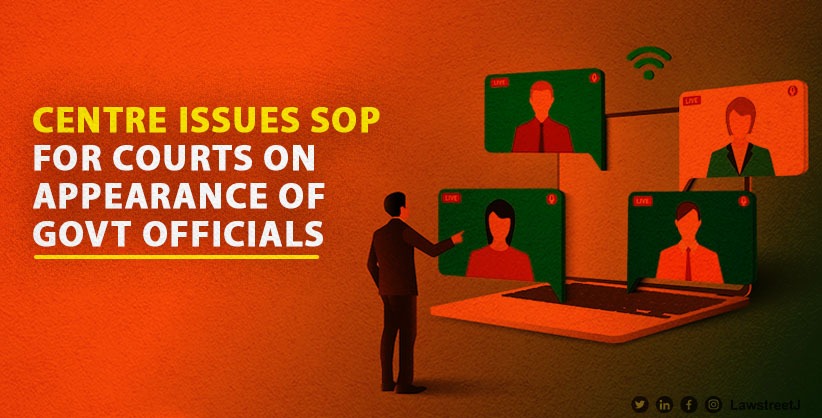NEW DELHI: The central government has issued a standard operating procedure for appearance of officials in contempt and other court proceedings, saying the courts should refrain from making comments upon dress unless their appearance is unprofessional or unbecoming of the positions.
"This SOP aims to create a more congenial and conducive environment between judiciary and government with a view to improve overall quality of compliance of judicial orders by the government, thereby minimizing scope for contempt of court," it said.
It also aimed to address issues related to appearance of government officials in government matters in courts. This would contribute significantly to saving of time and resources of both the court and the government by allowing for appearance of the concerned official through video conference.
In its suggestions on points of action, the SOP said as per directions of the Supreme Court, the in-person appearance of officials should be called for only in exceptional cases and not as a matter of routine. Courts should practice necessary restrain while summoning the government officials during the hearing of cases.
"In exceptional circumstances wherein there is no option other than the concerned government official to be present in person in the court, due notice for in-person appearance, giving sufficient time for such appearance, must be served in advance to such official," it said.
Howsoever, in exceptional cases too wherein in-person appearance of government official is still called for by the court, the court should allow as a first option, to appear before it through VC (video conference). The invitation link of VC for appearance and viewing, as the case may be, can be sent by the registry to the given mobile no(s)/e-mail id(s) by SMS/email/WhatsApp of the concerned official at least one day before the scheduled hearing, it added.
The SOP also stated that the appearance of government official in cases as pro forma party should be avoided.
It also said comments on the dress/physical appearance/educational and social background of the government official appearing before of the Court should be refrained.
"Government officials are not officers of the court and there should be no objection to their appearing in a decent work dress unless such appearance is unprofessional or unbecoming of her/his position," it said.
The document also gave an instance of hearing before the Patna High Court wherein officer in question was Principal Secretary for Housing and Urban Development in the state. He was dressed in a formal white shirt and trousers for the hearing but was reprimanded for appearing in court in "inappropriate attire". The judge further asked if he had attended the civil service training institute in Mussoorie and if they had not told him how to appear in court.
With regard to contempt proceedings, it said judge should not, ideally, sit on contempt proceedings relating to their own orders.
"It is an established principle of natural justice that no person can judge a case in which they have an interest or in other words be a judge in their own cause (based on legal maxim nemo judex in sua causa). Further, as per Section 14(2) of the Contempt of Court Act, 1971, in case of a person charged with contempt in Supreme Court or a High Court ; such person can request to have the charge against him tried by some other judge other than the Judge or Judges in whose presence or hearing the offence is alleged to have been committed," it said.
In case of matters being heard by the court involving issues that are within the exclusive domain of executive and the same can be resolved only through an executive/administration-related decision, then the court instead of taking up such matter for adjudication and/or call for appearance of government official related therewith, may refer the same to the executive for further necessary action, it said.
The SOP also said in case of matters before court involving public policy having wider implication not only for the central government but for the States and other stakeholders as well, it may be recommended to exercise caution to settle the point of law in rem before pronouncing the decision on the individual representation.
It also said the court should allow for reasonable timeframe. In case an order has already been passed and the timeframe stated in the judicial order is requested to be revised on behalf of the government, the court may allow for a revised reasonable timeframe for compliance of such judicial orders and allow for hearing of such requests of modification, it added.












